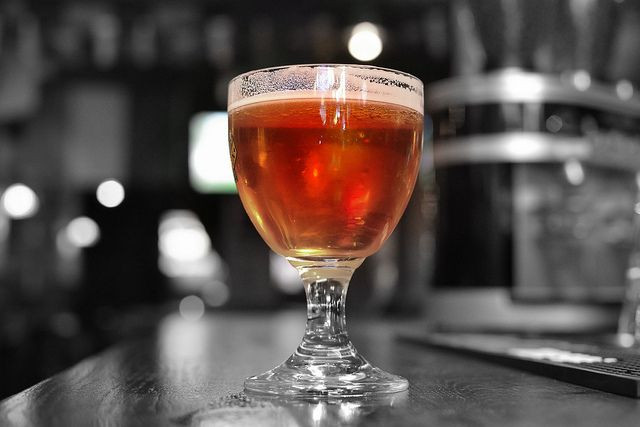Research On Link Between Parkinson's Disease Risk And Alcohol Consumption Remains Inconclusive

Though we’re still unsure of what causes Parkinson’s disease, a growing body of research has begun to suggest it could be caused by everything from the overheating death of brain cells to lifestyle choices, such as smoking, drinking coffee, or consuming too much alcohol. However, when it comes to alcohol, a new review finds the evidence is still too inconclusive.
In a systematic review of relevant observational studies and reviews conducted between 2000 and 2014, researchers from University of Tasmania found there was very little conclusive evidence showing that alcohol consumption had an effect on Parkinson’s disease risk. The researchers found some studies reported weak connections between the two, while others found the effects were compromised by some sort of bias.
"This review determined several possible methodological weaknesses that could explain the varying and often conflicting results of studies reporting lifestyle exposures, such as smoking, coffee/tea, and alcohol consumption contributing to Parkinson’s disease risk," said lead investigator Dr. Silvana Bettiol, from the School of Medicine at the University of Tasmania in Australia, in press release. "These included selection or self-selection of controls, difficulties in retrospective assessment of alcohol consumption, differences in the lengths of follow-up periods, and inconsistent definitions of drinkers and nondrinkers."
All of the 16 articles that met the parameters of the study were primary research articles published in English-language, peer-reviewed journals. To be considered for the study, articles had to include a control group that consisted of participants without Parkinson’s disease; they had to report associations between the quantity and frequency with which participants drank and incidences of Parkinson’s; and they had to adjust for factors like smoking and age. If an article only measured alcohol exposure between people who drank heavily and those who didn’t drink at all, it wasn’t considered since there was no in-between.
Even in studies where alcohol consumption and the incidence of Parkinson’s over time were accurately measured, the researchers still only found non-significant associations between the two, which further pointed to limitations or biases that might have affected the outcomes of the studies.
Other research has already shown the damaging effects of alcohol. A recent study found that prolonged alcoholism can damage both white and gray matter of the brain, while teens who binge drink have been shown to exhibit permanent memory and learning disabilities. Yet, despite this evidence, only more research will uncover whether alcohol's effects increase Parkinson's risk too.
"This study highlights the need for more prospective studies investigating the relationship between alcohol and PD of adequate sample size," Bettiol concluded. "Improvements to reporting of studies by investigators particularly with respect to sample size and power would help others interpret the epidemiological significance of any findings."
Source: Bettiol S , et al. Alcohol Consumption and Parkinson’s Disease Risk: A Review of Recent Findings. Journal of Parkinson’s Disease. 2015.
Published by Medicaldaily.com



























